【Interview】The Key Requirements for CEOs and Leaders in 2020, the era of Disruptive Changes
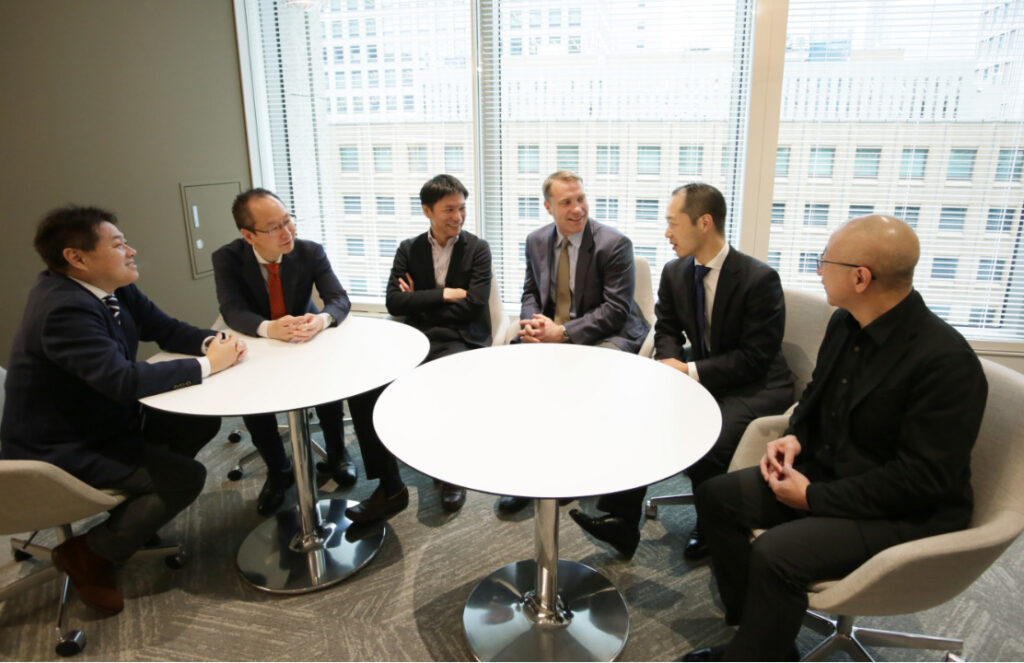
Introduction
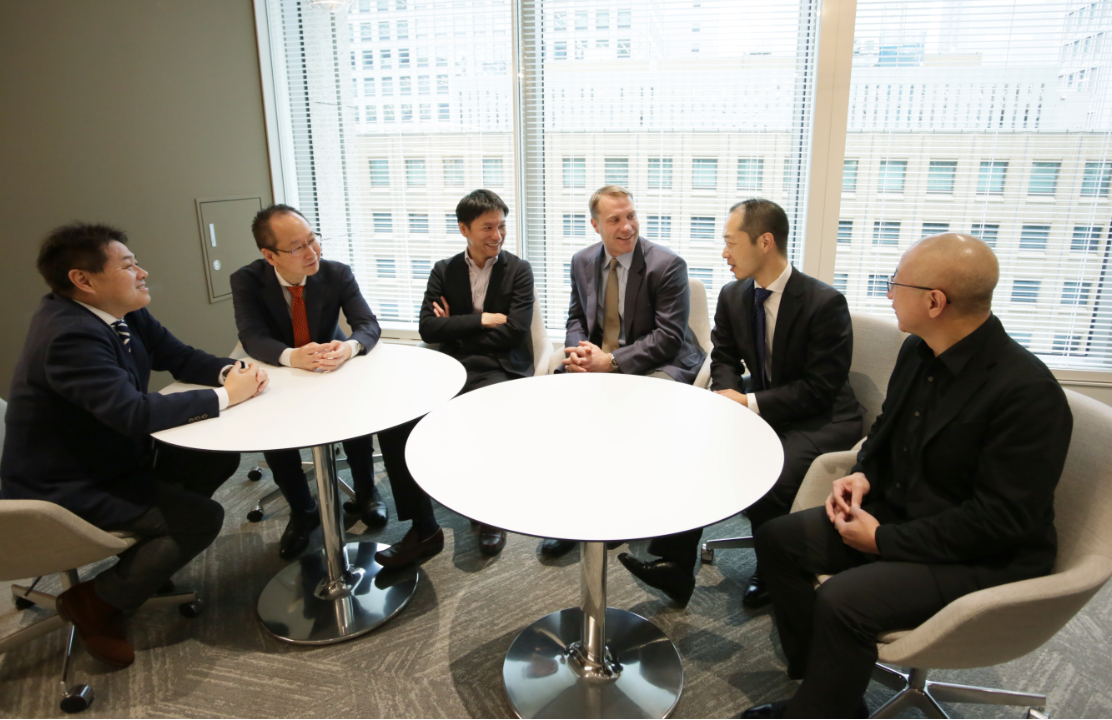
While the business environment surrounding organizations are rapidly changing, how are requirements for leaders changing? What are the trends and challenges particular to Japan?
HRPro had a talk with Ken Graham, General manager of DDI Japan, who conducts world-wide leadership survey, “Global Leadership Forecast”, Mr. Touyama and Fukuda from MSC and Mr. Uchigasaki and Ooi, principal from Mitsubishi UFJ Trust and Banking, HR Strategy Consulting Services Division. Mr. Uchigasaki and Mr. Ooi have frequent discussions with CEOs of leading organizations.
The world’s largest leadership survey, “Global Leadership Forecast”
Terazawa: Thank you for participating in our round-table talk. Today we would like to hear your thoughts on the theme of “CEOs Top Agenda and key requirements for CEOs and leaders in 2020, the era of disruptive changes”. Firstly, I would like to invite Graham to explain about “Global Leadership Forecast (GLF)”, the world-wide leadership survey conducted by DDI.
Graham: GLF is the world’s largest longitudinal global leadership survey. GLF 2021 is the ninth survey since DDI began the stream of research in 1999. The last study we had participants from 54 countries, nearly 2,500 organizations, almost 26,000 leaders and about 2,500 HR professionals. By researching both the leader’s view and HR, it can reveal the gap between them. We not only provide you with the data of the results but also interpret and transform them into a variety of practices and recommendations in order to enhance leadership. In addition, this time DDI will conduct GLF in partnership with Josh Bersin, leading global industry analyst and a top influencer in HR field. We are very much looking forward to collaborating with him.
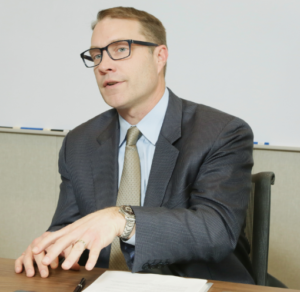
Fukuda: In Japan, GLF has been led by Management Center. Started in 2005, we have been conducting the survey every three years. The last study we had participants from 95 organizations, 1,500 leaders and 71 HR professionals.
Terazawa: We know that Mitsubishi UFJ Trust and Banking is also taking part this time. What kind of background or awareness made you want to participate?
Uchigasaki: Our HR Strategy Consulting Services Division offers consultations to C-level executives (CxO) and board members of leading organizations with a focus on JPX Nikkei 400 to accelerate the growth strategy centering upon talent and organizations. With regard to the implications behind participating in GLF this time, we would like to identify current issues of Japanese organizations and suggest a variety of practices for HR development. This is why we decided to participate in GLF. In order to lead the world in sustainability and governance management from an earth-driven (global perspective) in the future, I personally think that it is important for Japan to be able to transform itself from a “top manufacturing country” to a “top human development country”. Today, I would like to discuss with you the challenges of developing leaders for Japanese companies, and the future.
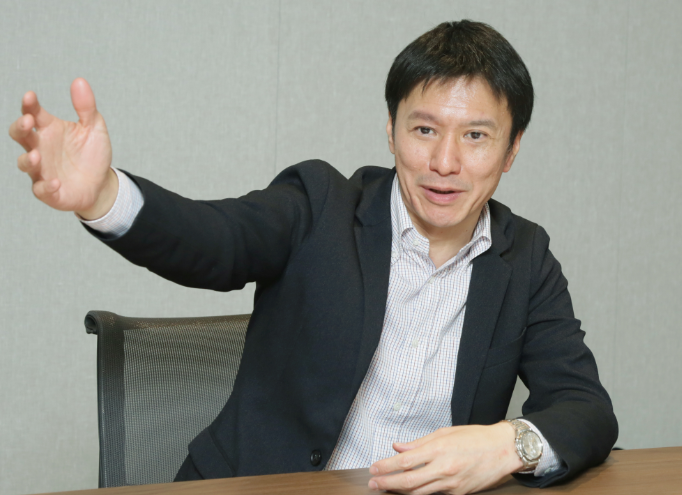
Increase ROE of human resources in the rapidly changing business environment.
Terazawa: Now, let me ask you about changes of business environments surrounding organizations. Needless to say, the world is rapidly changing.
Uchigasaki: I think there are three major trends; globalization, digital transformation and the declining birthrate and aging population. About globalization, we have three major risks worldwide; environmental risks of the earth, geopolitical risks centering on the U.S and China and information security risks. The biggest risks of all, I think, is the environmental risk. SDG business management and ESG investment have been discussed everywhere and we all know major Japanese organizations also must practice sustainability management for the earth to be sustainable. It is the CEO’s role to lead the way with CFOs and CHROs supporting the CEO as a management triangle. Specifically, under the globalization of recent years, our challenges are to create talents, organizations and cultures. We define the CEO as “Culture Employee Organization”, that is to say that a genuine leader should be able to develop talents and organizations and create corporate cultures. We believe that CHROs, with the authority delegated from CEOs, must increase ROE of human resources within the HR portfolio management.
Terazawa: I see. The words ROE of human resources and corporate culture came out, that’s exactly right. What your thoughts are, Graham?
Graham: In the past few surveys, CEO’s challenges have been consistently about “human” issues such as developing next generation leaders, and creating organization culture. Organizations with high employee engagement tend to have high profit ratio. In other words, to increase the organization’s performance, you need to create the culture of developing talents or enhancing employee engagement. HR plays an important role in that area.
Fukuda: Particularly, what’s really keeping CEOs awake at night is developing high-performing leaders as quickly as possible. However, according to our last survey, percentage of organizations with strong future bench has been steadily decreasing – 18% global, 9% Japan in 2011, 15% global, 6% Japan in 2014, 14% global, 4% Japan in 2017. In another words, there are not sufficient leaders who are able to meet their business needs in complex business environment. Although the figures are not very high around the world, it is remarkably low in Japan, which is a concerning issue.
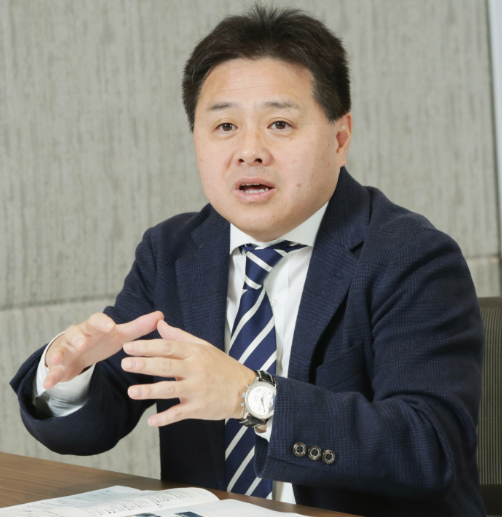
Ooi: “The internal logic” tends to precede all other things in Japanese organizations. However, with such dynamic changes and open innovations booming, we need to turn our eyes broadly to the world, not just to where we belong. From now on we have to develop genuine CEOs and leaders, and use a ruler to measure how they can succeed in the society and not just in a company.
Terazawa: Japan has been economically stagnating in the past thirty years with Nikkei stock average being way lower than that of the bubble economy period, which was at 40,000 yen. However, the stock price in America is about eight or nine times higher than the past, seven times in Germany. Why is the situation like this?
Tohyama: In Showa, we were able to expand our business by increasing efficiencies. After that, although we did not have new ideas or entrepreneurs, it still worked out because there were markets overseas like China, South-east Asia and so on but they are now saturated. Rather now, emerging nations are about to overtake us. We are truly at a crucial stage with no markets both inside and outside Japan.
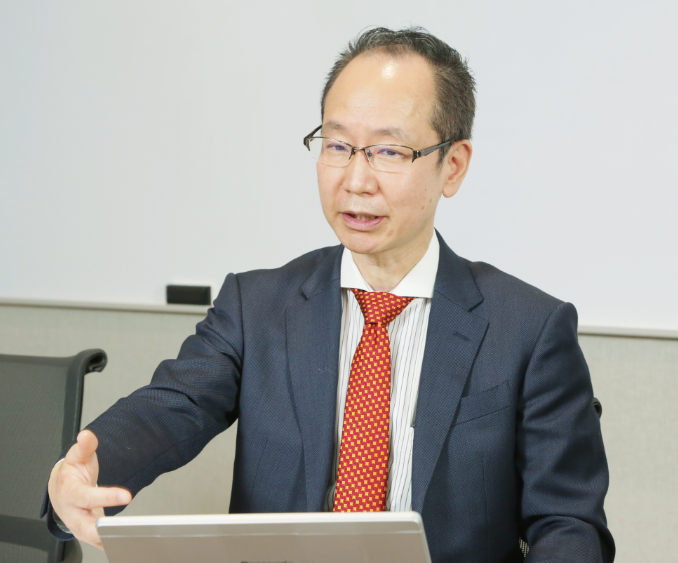
Uchigasaki: “Big company syndrome” is also one of the barriers inhibiting our growth. When the organization is young and small, you do not get such diseases whereas it happens as it gets bigger. There are three major problems with the big company syndrome; governance issues to slow down the decision-making, HR problems to inhibit the development of disparate talents within rigid and homogenous organizations, and organizational issues to hinder innovations.
Terazawa: Are those issues Uchigasaki-san just mentioned uniquely Japanese, Graham-san?
Graham: Organizations around the world also must cope with changes quickly and innovations are required. However, about the big company syndrome, there are problems particular to Japan. For example, about the declining birthrate and aging population, the circumstance is quite serious in Japan compared to other countries. Although overall problems are similar, it is more challenging for Japan to get the resolution, therefore, I think they need their own options.
Uchigasaki: When I talk to overseas investors, I find many CEOs in foreign countries believe their most important mission is to develop the next CEOs and create corporate cultures that can make innovations happen. In Japan, many CEOs think their corporate culture is to maintain the philosophy that was created when the company was established. I see the big problem of Japanese organizations lies here. The world is changing dramatically today, and we should create corporate cultures which respond to the changes with foresight and agility. In addition, CEOs and HR professionals should be responsible for the mission. Therefore, CHROs and CEOs must work together to create corporate cultures that enhance leadership development and employee engagement.
There is a room for growth because Japan is a forerunner of emerging issues
Terazawa: Now we understand HR must play an important role in developing talents and creating cultures. In Japan, how are we doing?
Ooi: In reality, we are not fully performing well. Now that the previous successful experiences do not suit the current situation; HR must have new functions. We must consider what kind of values we want to offer five years later or ten years later, and what kind of talents we have to develop in order to offer those values. I think the more the organizations become larger, the more we need to establish those teams to discuss the matter. It does not have to be the current HR department / members. For example, one way is to create a new structure for the human resources development team in a different way.
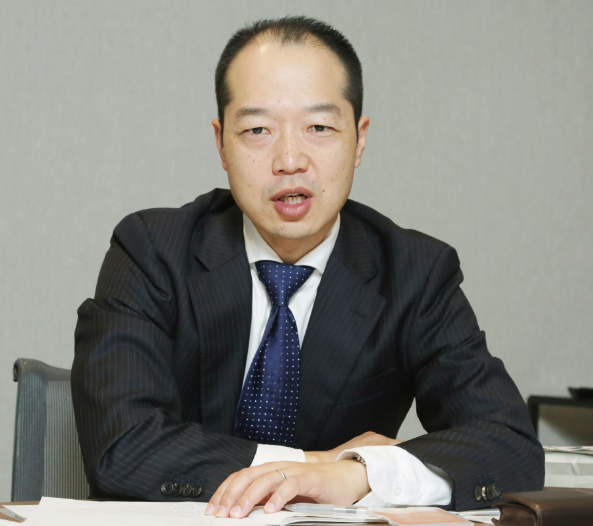
Fukuda: In the last GLF, there was an interesting data. It was to ask business leaders other than HR professionals about the role of HR with three options whether their HR is “(1)Reactor”, “(2)Partner” or “(3)Anticipator”. In Japan we had (1)40%, (2)40% and (3)20%. This indicates Japanese HR professionals are good at doing jobs given by somebody, but they are not sufficiently responding to the leaders’ expectation, that is to be “Anticipator”.
Uchigasaki: However, I think Japan has room for growth. In the period of high economic growth, Japan was able to catch up with practices of Europe and America in a short amount of time and grew by the power of worksites with high-volume production. From now on, concepts of values of Millennials will shift from goods to experiences and to heart and soul, it is the right time for CEOs to display their leadership. Originally, Japanese organizations appreciate the principle of Oumi-shonin (merchants from west part of Japan), “Do well for three factors (buyer, seller and society)”. When Oumi-shonin was very active in Edo era, ROE was presumed to be 20 percent. Today we have to do well for six factors; buyer, seller, society, producer, shareholder and environment, and this concept will lead to sustainability management including SDG business management and ESG investment. Japan will face big issues such as the declining birthrate and aging population ahead of the rest of the world. This is especially why I think we have great chances to display our leadership as a forerunning country of emerging issues, and CHROs must take lead in the action as a HR innovation leader.
GLF, a perfect survey for the “health checkup” to figure out organizations’ current circumstances
Terazawa: To summarize what we have discussed; it is critical to define new leaders’ requirements clearly and develop them. Especially in Japan, we are in a difficult situation with the declining birthrate and aging population, the big company syndrome and so on. Although we know we need to have great leaders, according to GLF, leadership in Japan is weaker compared to other countries. In addition, while the role of HR is critical for fostering corporate cultures and developing next generation CEOs and leaders, we are one step behind. Nonetheless, tough times bring opportunities. We have great room for growth depending on how we act from now on. We need to assess ourselves objectively by participating in GLF and highlight our own organizations’ issues to seek for actions to take.
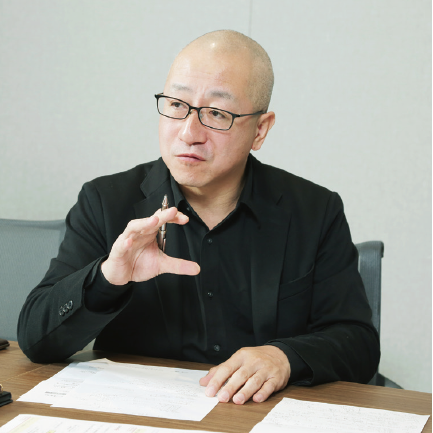
Uchigasaki: I think GLF is just like a “company health checkup”. It reveals the current circumstances and gives you a foothold for discussing issues.
Tohyama: In addition, GLF has a great advantage, which is to view the situation in Japan from a global perspective.
Terazawa: “Company health checkup” is indeed a good metaphor. Lastly, I would like to have a rough outline of GLF this year that starts in February.
Graham: Because GLF is a fixed-point observation we ask the same questions every time to some extent. Additionally, we bring new topics in line with the times. In the previous time, questions about “digital transformation” and “using analytics in HR department” were introduced. Those stay this time and new questions about “diversity and inclusion” and “well-being” will be added.
Fukuda: Josh Bersin is also giving his attention to “well-being”, which makes quality of life better in terms of physical and mental health, sustainable thriving communities. We have data that those who are feeling comfortable perform sixteen times better than those who are not. We will conduct the survey focusing on how organizations are trying to make them feel better.
Uchigasaki: As you may know, Japan did an excellent job in the Rugby World Cup 2019 with their slogan “One Team”, the team that can demonstrate its ability has “Teamwork”, “Diversity”, “Integrity”, “Social contribution” and “Grit”. For the coming GLF, I would like to conduct Japanese company’s health checkup and highlight issues by focusing on these five elements. Since Japan has a culture that fosters CxOs over a long period of time, I believe that leadership development is increasingly required that focus on “motivation” for millennials, “skills” for middle-career, and “experience” for senior management.
Graham: The rugby story reminded me that a good team, in any sports, focuses to function as a team and does not really care about who gets the score. If I compare that to a company’s activities, it is certainly critical to identify and develop future leader candidates, but it is also important that anyone in the company can show their leadership. As such, companies need to create a culture of leadership, not just create “leaders”. Additionally, it must be the best if they can function as a team.
Ooi: Since several years ago, I have been valuing the idea of “Leadership, anywhere anytime”, i.e. “Let’s demonstrate your leadership no matter when, where or who”. I think what Japanese organizations need right now is to increase the capability to display the leadership.
Terazawa: Having heard the word “company health checkup”, now we understand GLF tells you exactly where you are from a global perspective. Based on the result, you can also take effective actions to survive upcoming fast-changing situations. We have to participate, don’t we? It is free to participate, and if 1 HR professional and at least 50 leaders complete the survey (organizations with more than 2,500 employees), or at least 30 leaders in case of organizations with fewer than 2,500, they can get their own company’s report. I strongly recommend that as many organizations as possible participate in this health checkup. Thank you for your valuable discussion today.
Interviewer profile
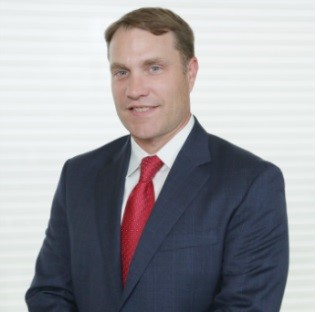
Ken Graham, Ph.D. General Manager, Senior Leadership Strategist, DDI Japan (Development Dimensions International, Inc.)
Ken Graham is the General Manager of DDI’s Japan operation. Much of his career has been focused on the Japan market, which included being based in Tokyo for over 5 years working alongside Management Service Center (MSC), DDI’s long-time partner. Ken has a Ph.D. in industrial/organizational psychology, as well as an M.B.A. He has spent his 20+ year career supporting large multi-national organizations with leadership development, succession management and other talent initiatives. At DDI, Ken has been instrumental in enhancing the capability of the Japan team to service the leadership needs of large Japanese and western corporations. He has deep expertise in designing and implementing complex global talent management programs, and is an experienced executive coach.
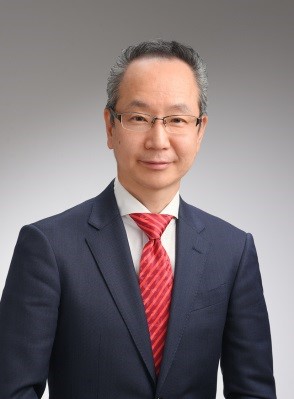
Masahiro Tohyama, M.A. President, Management Service Center Co., Ltd.
Masahiro Tohyama is responsible for developing and executing the MSC’s business strategies in order to attain the performance goals. He leads his executive team and they are preparing and implementing comprehensive business plan to facilitate change achievement by planning cost-effective operations and market development activities. His responsibilities also include overseeing the company’s financial performance, investments, sales, marketing, faculty, and product development. He acts as the public speaker and public relations representative of the company in ways that strengthen its profile. Masahiro received his MA in Literature from Department of Philosophy, Sociology Waseda University, Tokyo Japan.
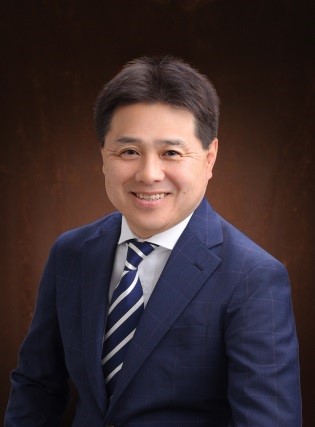
Toshio Fukuda, MBA, Executive Officer, Management Service Center Co., Ltd.
Toshio Fukuda has 26 years HR consulting background in the areas of leadership development, talent management, succession planning, and executive coaching. Toshio and his team design, develop, and deliver solutions in the areas of executive assessment, leadership development, coaching, succession management, and success profiling consultation. His recent projects include developing digital learning solution contents and online competency assessment. Toshio received his M.B.A from Claremont Graduate University – Peter F. Drucker Graduate School of Management.
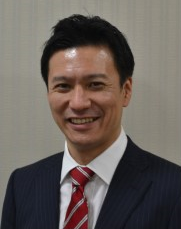
Shigeru Uchigasaki, MBA, General Manager, Principal, HR Strategy Consulting Services Division, Mitsubishi UFJ Trust and Banking Corporation
Shigeru Uchigasaki has Graduated from Waseda University Graduate School of Law and completed Master’s course in Waseda University Graduate School of Commerce (MBA). In addition to participating in Keidanren’s Corporate Governance Study Group, Shigeru has appeared on television, published in newspapers, and lectured on corporate governance. He has authored several publications, including “Reform of Board of Executive Remuneration (Augmented and Revised 2nd Edition)” (Co-author), Commercial law, 2018, and “Diversity Strategies at Boards and Top Management Teams of UK Companies (First and Second volume)” (Commercial law Nos. 2209 and 2211).
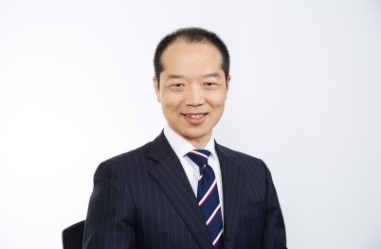
Kunio Ooi, MA, Principal, HR Strategy Consulting Services Division,
Mitsubishi UFJ Trust and Banking Corporation
After graduating from Doshisha University graduate school, Kunio Oi has worked several global consulting companies for about 20 years and joined Mitsubishi UFJ Trust and Banking. He has been involved in consulting services on human resources and organizational change, and has been responsible for a number of projects. He engages in a wide range of fields from designing a new organization to formulating HR strategies, redesigning personnel systems, managing and developing the next generation of leaders, assessing, and restructuring personnel operations for a wide range of industries. Kunio provides seminars and lectures every year, nationwide on the work-style reforms and talent development, and global talent management.
Japanese version of this article is available. Please cick here.
